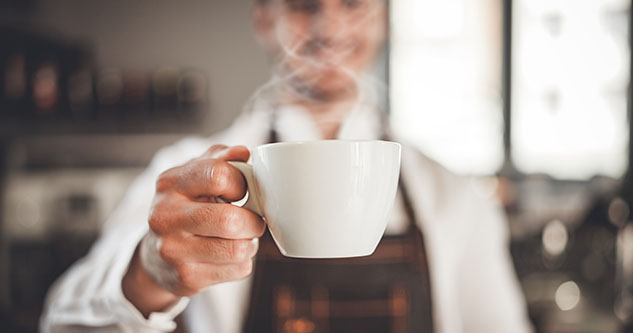Caffeine Has a Surprising Effect on our Shopping Habits

The international research which included Martin Eisend, Adjunct Professor of Marketing at Copenhagen Business School found that the effects of caffeine are particularly pronounced for "high hedonic" products (this refers to enjoyable, pleasurable products or experiences) like fragrances and home décor items, while being weaker for "low hedonic" products such as kitchen utensils and notebooks.
The significance of this research lies in the fact that caffeine is one of the most widely available legal stimulants, with about 85% of Americans consuming at least one caffeinated beverage daily, primarily through coffee, tea, and soda.
“Understanding how caffeine impacts consumer spending behaviour becomes crucial, especially in times of high inflation and restricted budgets when consumers need to be more mindful of their expenses,” says Martin Eisend.
The findings
The research involved a series of experiments conducted both in controlled classroom settings with students and in real-life shopping environments. Caffeine intake levels ranging from 30 mg to 100 mg, equivalent to the caffeine content found in typical servings of caffeinated beverages, were examined.
As part of the study, the researchers set up an espresso station near the entrance of a retail store in a major city in France and outside a department store in Spain. Out of the 300 shoppers surveyed, half were provided with a complimentary cup of coffee containing caffeine upon entry, while the other half were offered decaf or water.
According to their research, which was published in the Journal of Marketing, customers who drank a free cup of caffeinated coffee before browsing the stores spent over 50% more money and purchased around 30% more goods than those who drank decaf or water.
Moreover, caffeine influenced the types of items bought, with caffeine users showing a preference for nonessential products like scented candles and fragrances. The effects of caffeine on spending behaviour were observed among individuals who consumed two cups of coffee or less per day, but not among heavy coffee drinkers.
Valuable insights
The research aims to shed light on this everyday phenomenon and its implications for retailers, consumers, and public policy. Retailers can potentially benefit financially by encouraging shoppers to consume caffeine before or during their shopping trips, as evidenced by the provision of complimentary caffeinated coffee or in-store coffee bars by several stores and dealers.
“Consumers, on the other hand, should be aware of the impact of caffeine on their spending behaviour, particularly when they need to exercise caution with their expenses. Policy makers may also consider informing and educating consumers about the potential effects of caffeine on their spending habits,” adds Eisend.
This study provides valuable insights into the relationship between caffeine consumption and consumer behaviour, offering a new perspective for businesses operating in the retail sector and highlighting the importance of consumer awareness regarding the influence of caffeine on their spending decisions.
The contributors to the paper are: Dipayan Biswas, Patrick Hartmann, Martin Eisend, Courtney Szocs, Bruna Jochims, Vanessa Apaolaza, Erik Hermann, Cristina M. López, and Adilson Borges.